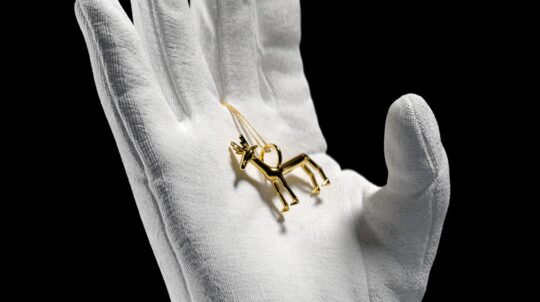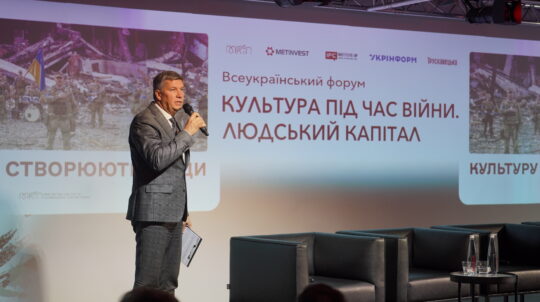Today, on October 5th, the Acting Minister of Culture and Information Policy of Ukraine, Rostyslav Karandieiev, met with representatives of the International Alliance for the Protection of Heritage in Conflict Areas (ALIPH), led by Valéry Freeland. The parties identified priority areas of cooperation and ways to implement them.
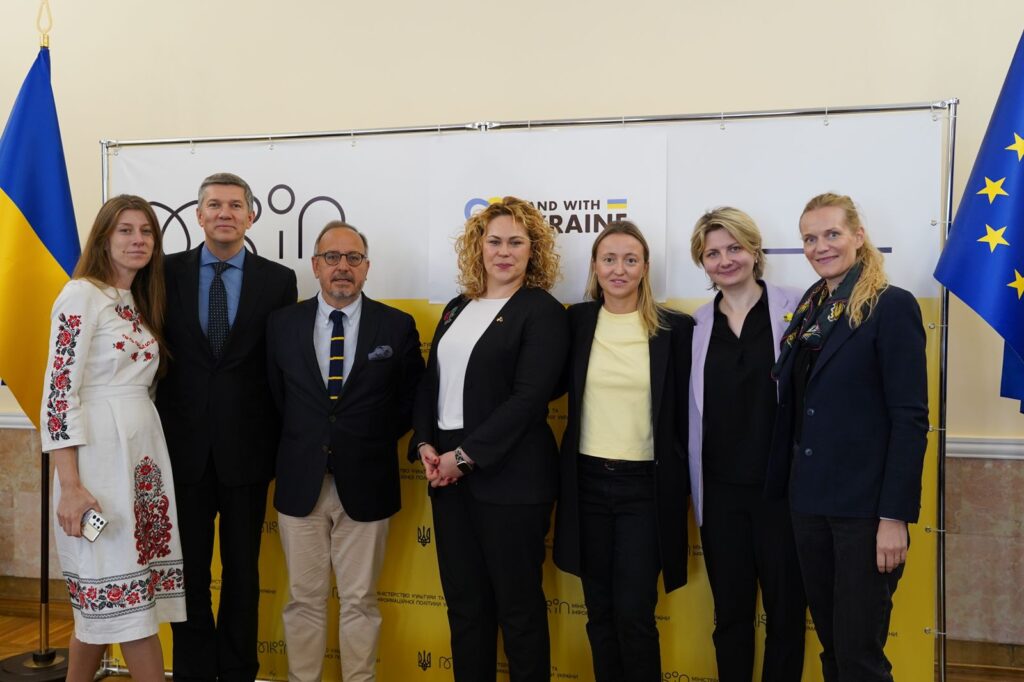
Rostyslav Karandieiev expressed gratitude to the ALIPH Foundation for their swift and robust support in preserving Ukraine’s cultural heritage, as well as for their expert assistance to industry professionals. He particularly emphasized the support provided by partners in conducting inventory, supplying expendable and packaging materials, protective equipment, and other resources in the early days of the full-scale war.
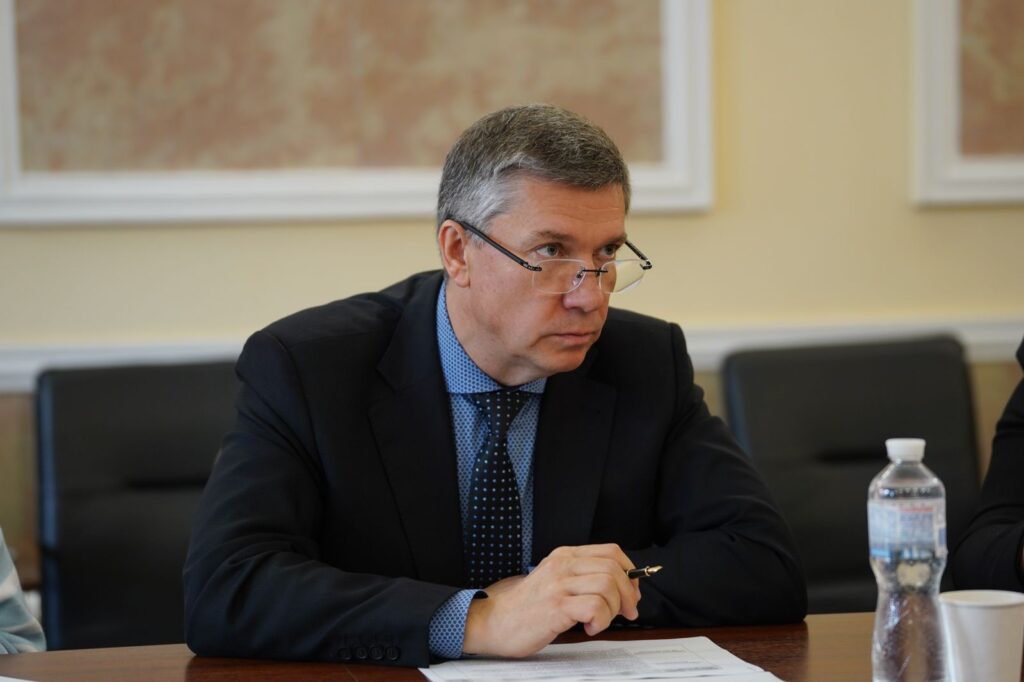
“As time goes on, our priorities evolve. At this moment, to preserve the damaged cultural heritage, we require modern technologies, experts in restoration, and competent managers who will ensure the completion of a comprehensive set of tasks and effective collaboration with partners. Additionally, digitalization remains a crucial component of cultural heritage preservation so that, in case of destruction, we can develop restoration projects and preserve history for future generations,” emphasized the Acting Minister.
Valéry Freeland, the Executive Director of the ALIPH Foundation, assured of the foundation’s readiness to continue providing ongoing support to Ukraine in the field of cultural heritage protection.
“We support nearly five hundred projects related to cultural heritage preservation in countries, including those in conflict areas. We didn’t anticipate having to work in Europe, but now we have supported numerous projects in Ukraine, and this work will continue,” he said.
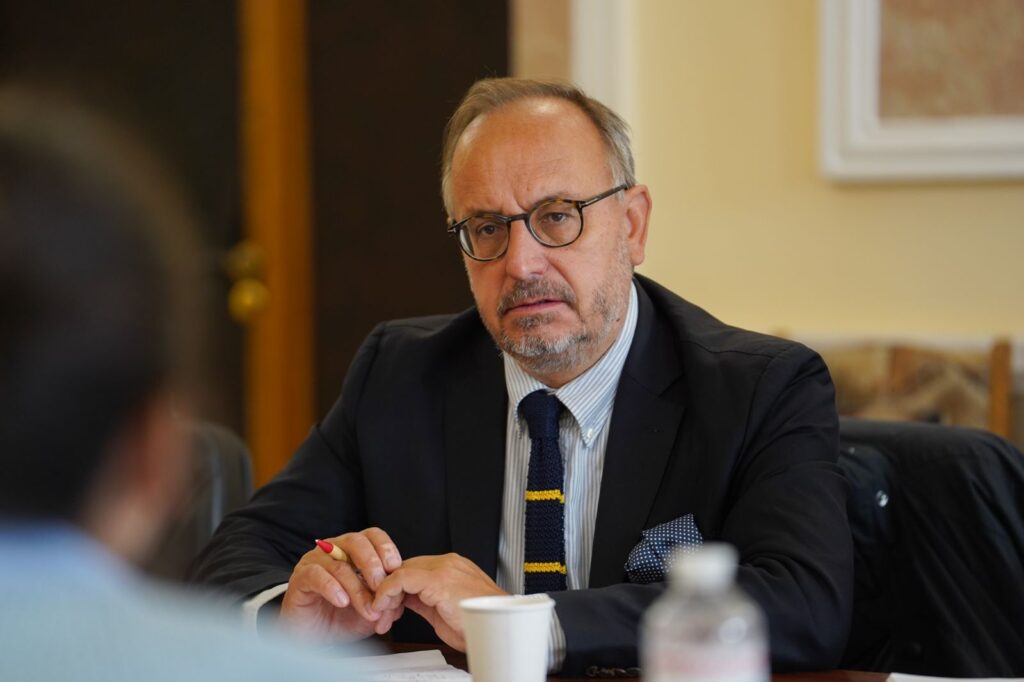
Additionally, Rostyslav Karandieiev divided Ukraine’s needs for cultural heritage preservation into several categories. The first category involves immediate needs, which include expendable materials for quick, temporary repairs. The second category is the full restoration of objects, buildings, and artifacts. This process is lengthy and requires significant efforts. The third category entails assistance from experts in the field of restoration who possess extensive experience and expertise. The last but not least category is digitalization, which includes 3D scanning, creating registries, and databases.
“We kindly request considering the possibility of taking patronage over one or several of the ruined cultural heritage sites and assisting in conducting a full spectrum of restoration works. Focusing on specific monuments is an effective approach as it promotes the activation and expansion of horizontal collaboration between cultural institutions, engages experts, and expands the network for training professionals in the field of restoration,” noted the Acting Minister.
The parties expressed gratitude for the detailed and timely discussion, appointed coordinators, and agreed on further steps.
